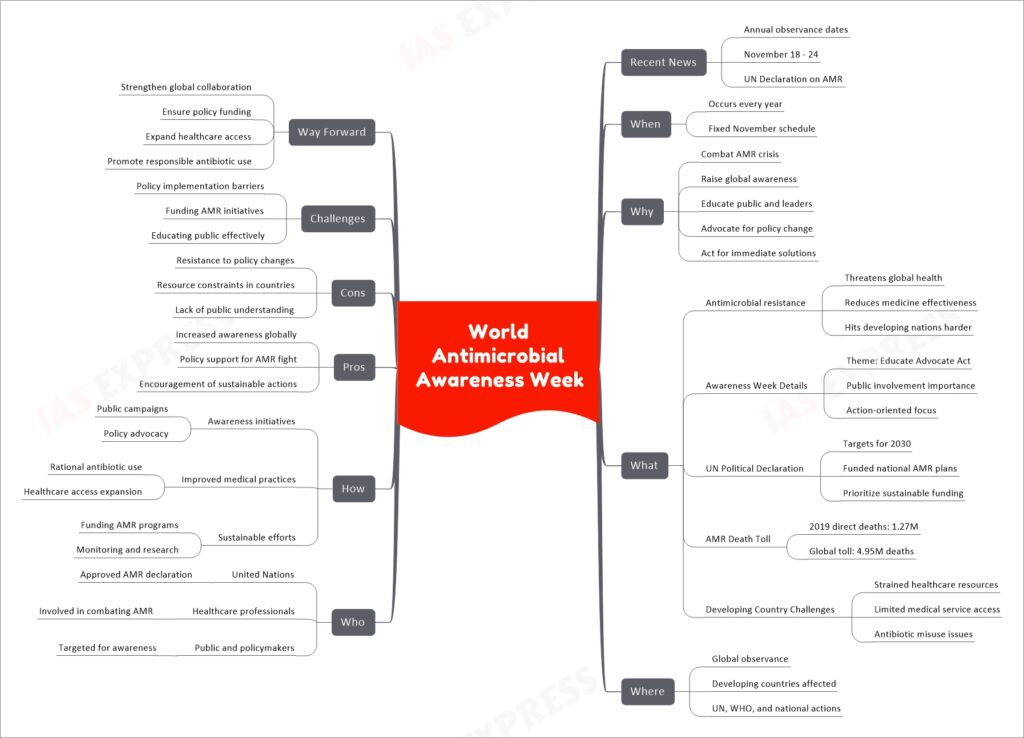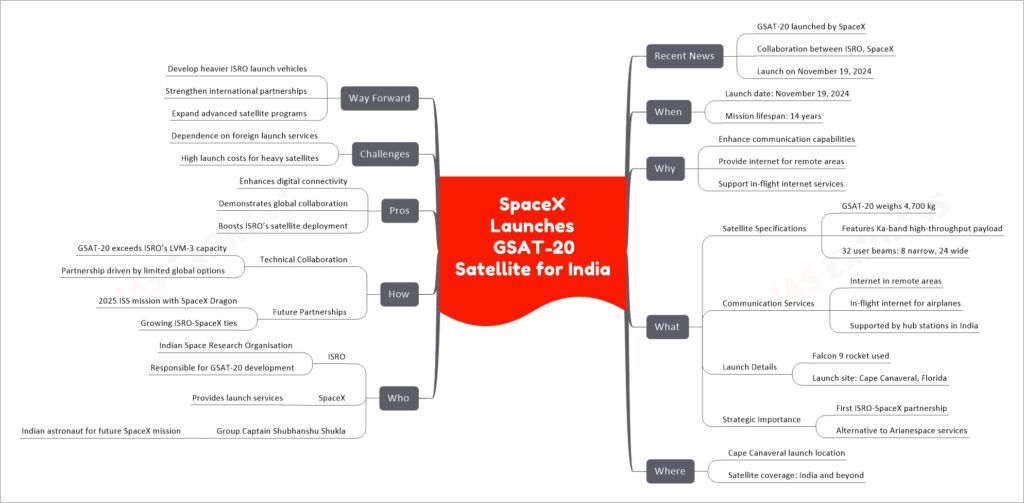[Newsbits] 19-30.11.2024: Nanozymes, E-Daakhil Portal & more


World Antimicrobial Awareness Week (WAAW) occurs annually from November 18 to 24 to combat antimicrobial resistance (AMR), a global health threat reducing life-saving medicines’ efficacy. The 2024 theme, “Educate. Advocate. Act now,” underscores immediate action across society. Developing countries face higher risks due to limited healthcare and medicine misuse. In 2019, AMR caused 1.27 million direct deaths, contributing to 4.95 million globally. The United Nations aims for 60% of nations to fund AMR plans by 2030. Challenges include policy barriers and public awareness gaps. The way forward involves collaborative efforts, sustainable funding, and improved healthcare access.

Researchers discovered unique mineral chimneys on the Dead Sea floor, reaching up to 7 meters high and forming through rapid halite crystallization as salty groundwater interacts with the Dead Sea brine. The shrinking Dead Sea, losing about 1 meter annually, exacerbates environmental challenges for Israel, Jordan, and Palestine, including thousands of sinkholes posing risks to lives and infrastructure. These chimneys could help predict sinkhole-prone areas. Researchers suggest using autonomous sonar systems for mapping vulnerable regions, offering insights into groundwater trends and advancing predictive technologies to manage this dynamic environment effectively.

Researchers discovered a new species of crocodile newt, Tylototriton koliaensis, in Vietnam’s Cao Bang region. Published in the journal ZooKeys, the medium-sized newt measures about 5 inches and features unique black and orange coloration. Thriving in mountain forests at elevations over 3,300 feet, it breeds in streams during rainy seasons and hides under rocks in winter. DNA analysis confirmed the species, marking it as a significant contribution to the taxonomy of amphibians. Future studies will explore its ecological role, behavior, and conservation strategies to preserve this biodiversity-rich habitat amid environmental challenges.

Telangana has announced 100% exemption from road tax and registration fees for electric vehicles (EVs) until December 2026 under its EV policy to reduce urban air pollution and promote eco-friendly transportation. Eligible vehicles include two- and four-wheelers, three-wheelers like autorickshaws, electric goods vehicles, and public/private electric buses. TSRTC buses benefit from permanent exemptions. This initiative aims to make EVs more cost-effective, spurring adoption for personal and business use, especially in urban centers like Hyderabad. Challenges such as infrastructure development and rural adoption require attention for widespread success.

India’s GSAT-20 communications satellite, weighing 4,700 kg, was launched on November 19, 2024, by SpaceX’s Falcon 9 rocket from Cape Canaveral, Florida. A collaboration between ISRO and SpaceX, this launch marks a strategic shift for ISRO due to limited capacity in its LVM-3 rocket and reduced options from traditional partners like Arianespace. GSAT-20 features a Ka-band payload and will enhance internet services in remote areas and in-flight connectivity. The partnership reflects growing ISRO-SpaceX ties, with a 2025 mission planned to send an Indian astronaut to the ISS aboard SpaceX’s Dragon spacecraft.
If you like this post, please share your feedback in the comments section below so that we will upload more posts like this.
